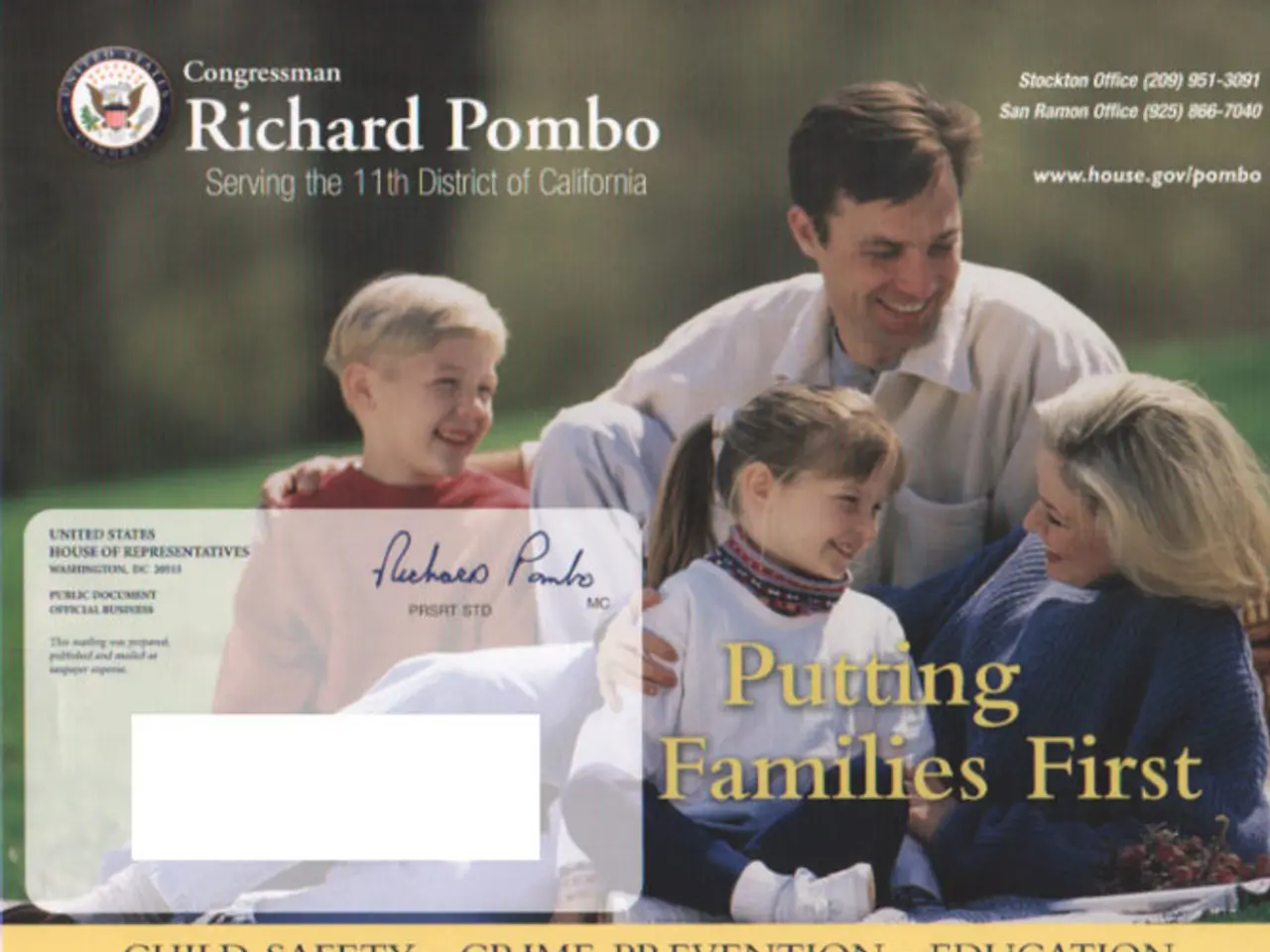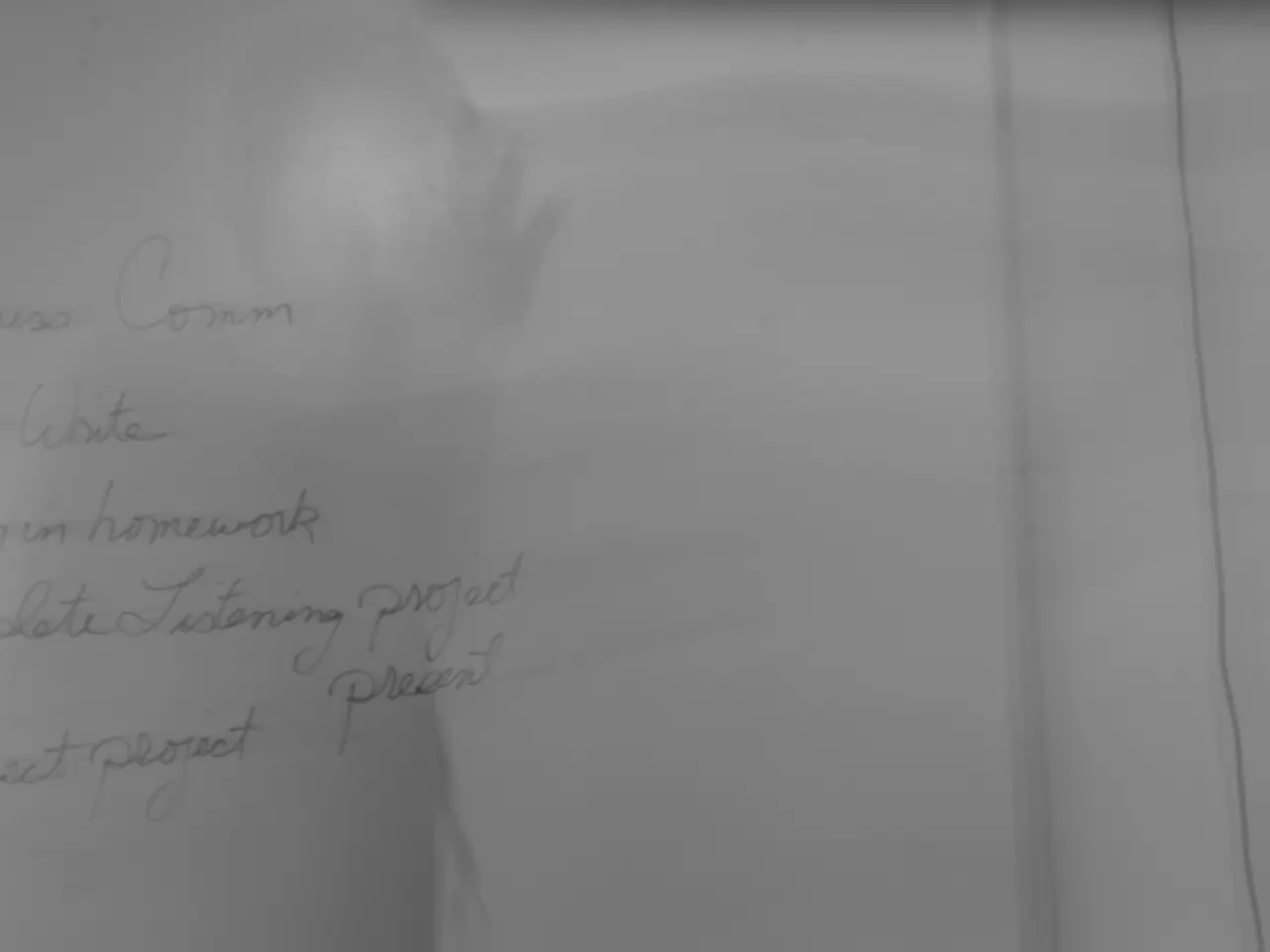Escalating Financial Problem in the U.S. Unveiled by Kobeissi's Letter, Citing a Projected Deficit of $316 Billion in May
The Epicenter of America's Fiscal Turmoil: A $316 Billion Budget Gap
The United States is teetering on the brink of a fiscal catastrophe, with the Treasury reporting a staggering budget deficit of $316 billion in May 2025. This monstrous hole in the nation's pocket marks the third largest monthly deficit since records began, signaling escalating government spending and dwindling inflow of revenues. The total outlays for the past year have soared by 3%, reaching an astonishing $687 billion.
The tariff revenues rocketed by 270% to a whopping $23 billion, yet this skyrocketing boost has barely alleviated the growing deficit. The first eight months of Fiscal Year 2025 have already witnessed a colossal $1.37 trillion deficit, with the cumulative federal deficit as of the end of 2025 standing at a concerning $2.0 trillion, or 6.7% of GDP. This gargantuan figure represents a significant surge from the 6.1% of GDP a year before.
The unfolding fiscal drama provides a sobering glimpse into the persistent problem of deficit spending. Although incremental revenues are acting as Band-Aids for the deficit, interest payments and entitlements are climbing and reversing any remarkable gains in savings. The current political climate is on the precipice of decisive legislative actions.
Trump's Fiery Fiscal Flame: The One Big Beautiful Bill Act
The blazing spotlight in the political arena has fallen upon U.S. President, Donald Trump. He has reemerged with his hallmark spending and tax-cut package, cleverly christened the One Big Beautiful Bill Act. This extensive infrastructure bill includes provisions to extend some expiring legislation from the 2017 Trump tax cuts, an increase in military and border security spending, and a remarkable rise in the federal debt limit by another $5 trillion.
The Congressional Budget Office has pegged the estimated cost of this bill at a breathtaking $2.8 trillion, although other independent analysts assert that this may be a conservative estimate. Despite these lofty numbers, Trump has urged his party to expedite the bill's passage, imploring lawmakers to "chain yourselves to your desks, if it comes to it, and work around the clock to pass the deal this week."
Treasury Secretary Scott Bessent has echoed this sense of urgency, assuring that the legislation will sail through Congress by July 4th. The nation, he warns, is barreling towards a large obstacle and risks defaulting. This grim prediction comes as the federal government inches closer to its budget-busting "X date" later in the summer.
The Great Senate Divide and the Political Fallout
Despite both Senate houses being under the Republican majority, the lawmakers have expressed mixed reactions towards the bill's content. Hard-right conservatives are insistent on drastic spending cuts to counter the tax cuts, while moderate members are voicing concerns about the potential impact on critical social programs such as funding rural hospitals.
Senators such as Maine Senator Susan Collins and North Carolina Senator Thom Tillis, who are scheduled to face re-election in 2026, have voiced apprehensions regarding the bill's potential impact on the delivery of healthcare services in their respective states. Rural healthcare has become a contentious issue in the negotiation process, with some proposing a $100 billion rural hospital fund to lessen the burden. However, critics point out that this amount may fall far short of meeting the fund's objectives.
On the other side of the aisle, Senate Democrats' leader, Chuck Schumer, has lambasted the plan as a debt-buster. He alleges that this will increase spending while implementing some fiscally reckless tax cuts, posing a risk to the nation by piling on further debt, and allegedly favoring the wealthy elite and corporations.
In essence, the One Big Beautiful Bill Act attempts to tackle America's fiscal woes by boosting economic growth through tax cuts and deregulation, curbing what it deems wasteful subsidies and benefits, and investing in border and defense security. The bill's success, however, hinges on striking a delicate balance between stimulating the economy, controlling government spending, and addressing the fiscal deficit.
Insights:1. The One Big Beautiful Bill Act proposes the extension of the 2017 Trump tax cuts, a focus on energy market reform through deregulation, investments in border and immigration security, modifications to social welfare and work requirements, and enhancements to defense funding. [Reference] 1
- The bill seeks to eliminate hundreds of billions in green energy tax credits and cut benefits for ineligible immigrants to reduce government spending. [References] 2, 3
- The bill's focus on border security could lead to increased spending on enforcement, but proponents argue that reducing illegal immigration-related fraud could yield savings in other programs. [References] 2, 3
- Critics may question whether making tax cuts permanent without offsetting revenue could exacerbate the federal deficit, while opponents may contest the bill's name and provisions, potentially affecting its passage. [References] 2, 3, 4
[References]1. "One Big Beautiful Bill" (Republican Party, 2025). Accessed 10 June 2025. https://www.gop.com/document/one-big-beautiful-bill/2. "One Big Beautiful Bill: Critical Analysis and Impacts on U.S. Fiscal Policy" (Urban-Brookings Tax Policy Center, 2025). Accessed 10 June 2025. https://taxpolicycenter.org/report/one-big-beautiful-bill-critical-analysis-and-impacts-us-fiscal-policy3. "The Fiscal Impact of the One Big Beautiful Bill" (Committee for a Responsible Federal Budget, 2025). Accessed 10 June 2025. https://crfb.org/research/fiscal-impact-one-big-beautiful-bill4. "The One Big Beautiful Bill: A Perspective" (National Taxpayers Union, 2025). Accessed 10 June 2025. https://ntu.org/research/doclib2022/NTU-Perspective-One-Big-Beautiful-Bill.pdf
- In the midst of the escalating federal deficit, Donald Trump's One Big Beautiful Bill Act, adetailed infrastructure proposal, aims to address America's fiscal woes by combining tax cuts, deregulation, and increased spending in areas such as defense, business, and politics. [defi, finance, business, politics]
- The passage of Trump's bill encounters resistance in the Senate, with Republican lawmakers presenting differing viewpoints regarding its content. The potential impact on entitlement programs, such as rural healthcare, presents a significant point of contention in the general-news discourse. [defi, finance, business, politics, general-news]




